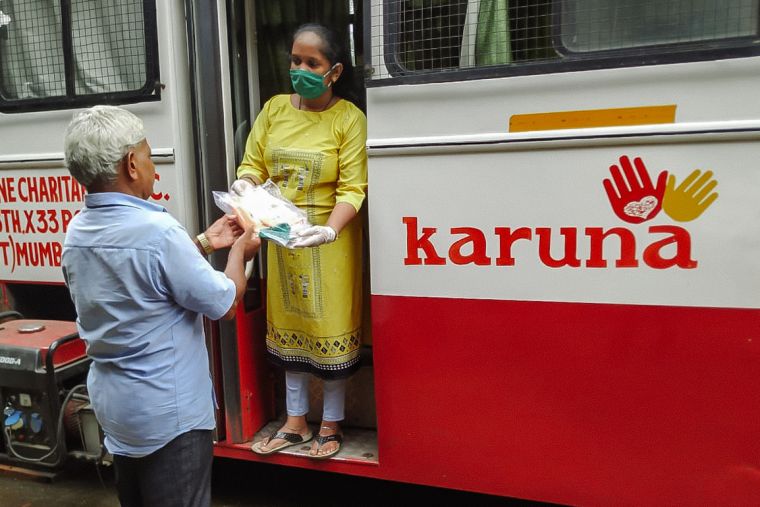Lessons from Covid-19 have shone a light on city slums giving hope to India's poor

'Give justice to the poor and the orphan; uphold the rights of the oppressed and the destitute. Psalm 82: 3 (NLT)
India's coronavirus crisis is reported to have reached a critical level this week. More than two million cases have been diagnosed and 50,000 deaths reported.
For the nine million people living in Mumbai's slums there's little hope of avoiding the virus. Living conditions are cramped and unsanitary. It is virtually impossible to self-isolate, socially distance and practise good hand hygiene. There is often no running water or even proper light and ventilation. Dozens of families share a single toilet. In short, there couldn't be a more perfect breeding ground for Covid-19.
Recent testing has revealed that more than half the residents in Mumbai's slum areas have the antibodies for Covid-19. Outside of the slums, the rate was 16 per cent. While this is of little surprise, it has at least exposed India's health disparity between rich and poor.
Mumbai is dubbed 'the city of dreams' and features in the world's top 20 wealthiest cities, according to New World Wealth's October 2019 report. But despite being home to Bollywood stars and world class cricketers, Mumbai has the largest slum population of any city in the world.
Almost half of Mumbai's population are slum dwellers. Yet the slum dwellers and those living in nearby luxury homes are intrinsically linked. The slums are home to cooks, maids, drivers and cleaners.
Previously it was of little concern to the wealthy as to where their domestic staff lived. But now they are only too aware of the health risk their domestic staff pose. So much so that Mumbai's middle classes are fearful of letting workers back into their homes. Tragically, this leaves domestic staff in an even worse position. Living hand to mouth, they are left hungry.
Covid-19's grip on India has prompted the director of its National Institute of Public Finance and Policy, Dr Rohit Roy, to call for an end to slum living.
Alluding to the previous 'indifference' of the middle classes to slum conditions, he said, "if not for the sake of the poor, for public health."
The Bible mentions more than 300 times that it is our responsibility to care for the poor and work for justice. So why does it take a global pandemic for those that have, to seek justice for those without? It is clearly God's will to help people escape poverty. Not because it prevents us from catching Covid-19 from our cleaner, but because it's His plan for society! After all, access to healthcare, housing, food and safe water are basic human rights.
While Covid-19 is a highly infectious virus, leprosy is a mildly infectious bacterial disease that the middle classes are much less likely to catch. Long term exposure to leprosy is needed for someone to catch the disease as well as a weakened immune system. This is usually caused by the effects of malnutrition and poor living conditions.
While leprosy has always been in the slums, it is Covid-19 that has provided the wake-up call and exposed the health disparity between rich and poor. More than half of the world's new cases of leprosy are found and treated in India each year. Improving living conditions is likely to radically slash the number of new cases. It was for this very reason that the UK saw an end to leprosy long before a cure was found.
The Leprosy Mission's partner organisation, Stepping Stone Charitable Society, runs an ambulance project bringing medical care to the Mumbai slums. Called the Karuna ambulance, its aim is to reach out to leprosy-affected people and other marginalised groups. This includes those with HIV and commercial sex workers.
The Karuna ambulance has been permitted as essential services to enter five slum communities during Mumbai's lockdown. As well as providing essential medical care to slum dwellers, the team has distributed emergency food parcels and face masks.
Karuna means 'compassion' in the ancient Indian languages of Sanskrit and Pali. In God's eyes it is through compassion that a helping hand is given to those needing it most. Failing that, now Covid-19 has done its worst, we pray God's will be done and millions will be lifted from extreme poverty.
Charlotte Walker works for The Leprosy Mission, a Christian charity working in 28 countries to defeat leprosy and transform the lives of people affected.











